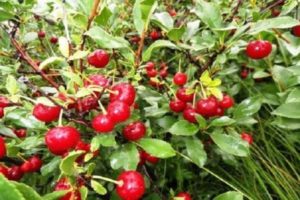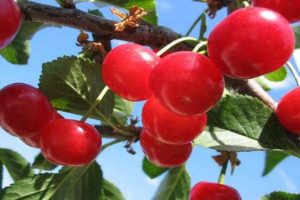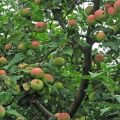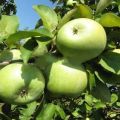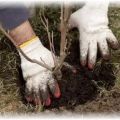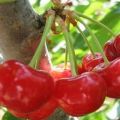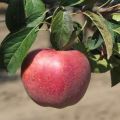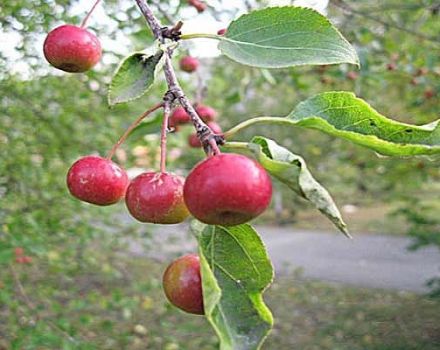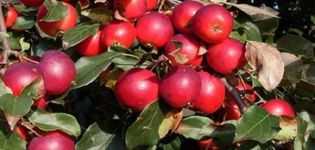Breeding history, description and characteristics of the Minx cherry variety and growing rules
Fast-growing and resistant to low freezing temperatures - this is the description of the variety of cherry Minx. The tree is unpretentious to care for. The one who placed such a seedling on the site will have a good harvest every year. Before planting, it is important to select a tree according to all criteria and provide it with proper care.
History of origin
The variety was obtained in the process of crossing the varieties Samsonovka and Kievskaya. The authors are the Turovtsevs, who work at the Horticultural Institute. M.F.Sidorenko.
The registration of the variety in the register was carried out in 1997.
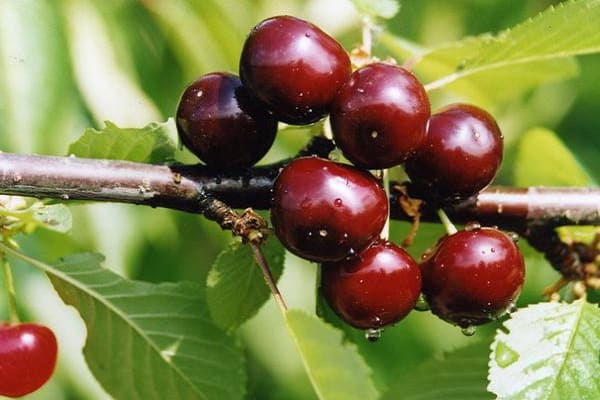
Description of the variety
In the description of the variety, it is indicated that the tree is spreading, of medium height. Crohn of Minx is moderately dense, has a spherical shape. Shoots of medium thickness are brownish-brown.
The foliage is smooth, glossy, pointed, has a pronounced green color. Fruits grow on long annual growths.
The berries are of a maroon color. Weight up to 6 g. They have a small round bone that leaves the pulp perfectly. The surface is smooth and shiny. The taste is sweet with sourness.
The tasting was given 4.8 points.
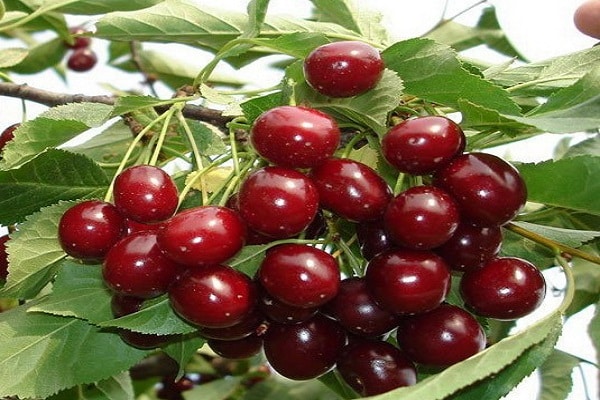
Growing features
Knowing the rules of planting and growing, you can create the most suitable conditions for a seedling.
Sapling selection
When selecting a seedling, the growing region is taken into account. The variety is cultivated in the North Caucasus region.
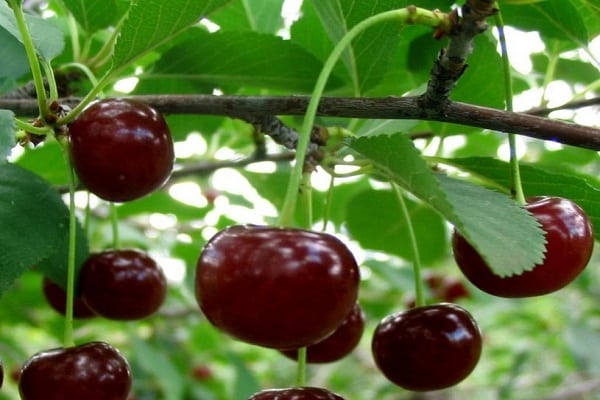
The tree for planting must have a good root system. No damage, signs of disease and pests. The wood must be ripe.
Planting material 1-2 years old, grafted with a graft, tolerates transplantation. Such plants can grow up to 110 cm in height.
If the seedling is purchased with leaves, they must be cut off. After that, the rhizome is wrapped in wet burlap and placed in a bag.
If the tree is purchased in the fall, and planting will be later, it is added drop-in on the site.
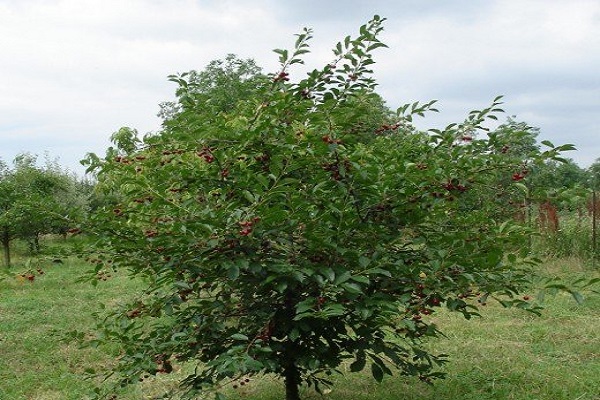
Choosing a landing site
The tree loves light, so it is better to plant it on the sunny side. The ideal option for placing groundwater is 1.5-2 meters below the roots. Suitable soil is sandy loam and loamy.
Landing
Fundamental rules:
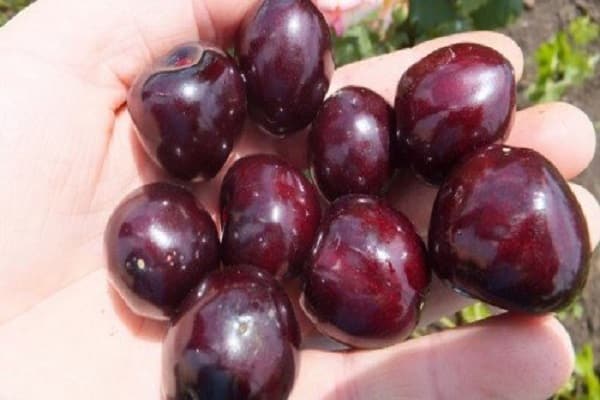
- Before planting, the damaged and dry roots are cut off from the seedling. The branches of the crown are shortened by ⅔, and the central conductor is shortened to the first branch. Slices must be treated with garden pitch.
- Soak the root in water for 10 hours. Any drug that promotes root formation can be added to the water, for example Radifarm or Kornevin.
- Dig a hole: depth 50 cm, width and length 80 cm.
- It is necessary to drive a stake into the center, which will serve as a support.
- At the bottom, make a small elevation and put a seedling on it, straighten the roots and move it tightly to the support.
- It is important not to bury the tree. The root collar should be level with the ground.
- Cover with soil, tamping well.
- Pour with two buckets of settled water.
- The soil will settle from the water. You can level the level by adding dry soil.
- Tie the seedling to the support.
- Mulch the near-stem space for longer moisture retention.
- When planting several trees, the distance between them should be at least 3 meters.
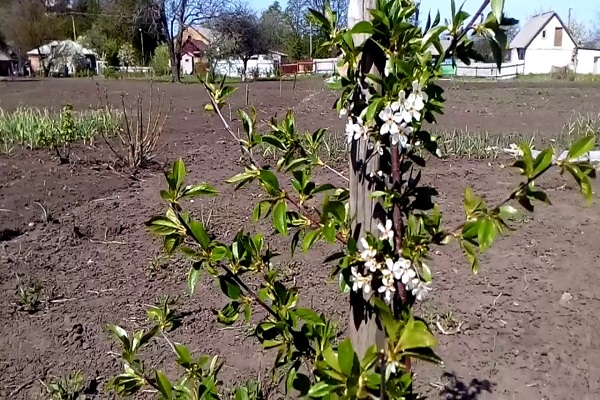
Tree care
Complete care affects the yield of the tree.
Watering
It is necessary to water according to the scheme:
- after flowering;
- when forming the ovary;
- after harvesting the fruit;
- before the onset of frost.
A furrow is made along the perimeter of the crown, where water is poured. The average amount of water required is 6 buckets. Water is added as it is absorbed, slowly.
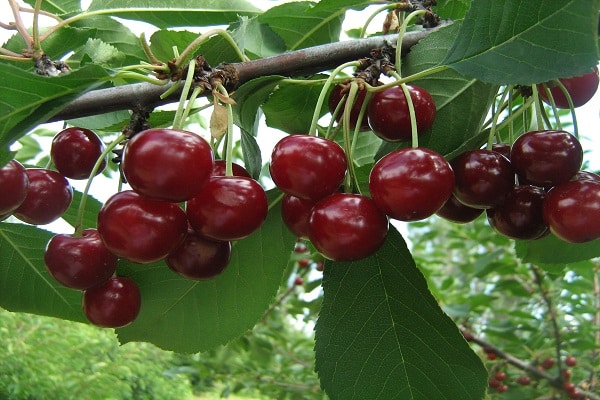
Pruning
Cherries require regular pruning, this allows you to extend their life, form a crown, increase the yield, and remove old branches.
Pruning from a young seedling. Otherwise, the tree will quickly overgrow. Pruning is carried out before sap flow. The shoots that remain should look in different directions. Slices must be treated with garden pitch.
Top dressing
Cherries require periodic feeding with mineral and organic fertilizers.

Pollinators
Minx is self-fertile. Pollinators are Chernokorka, Samsonovka.
Preparing for winter
The near-stem circle is loosened or dug up. Cherries are watered and fed with fertilizers. This must be done in advance, so that the tree has time to be saturated with useful substances and overwinter well.
To prevent the spread of pests and parasites, cut off all damaged branches and burn them.
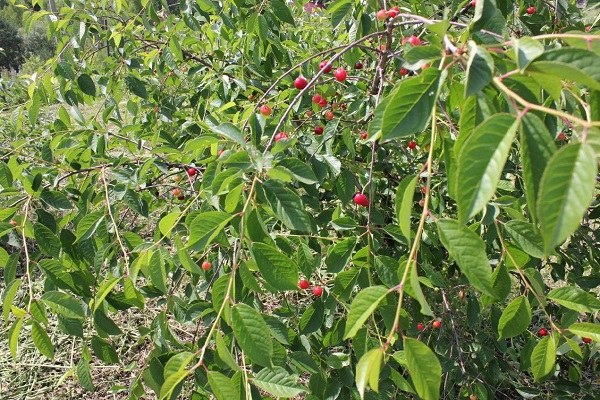
Diseases and pests
Cherry varieties Minx is resistant against many diseases affecting stone fruit.
Carry out preventive measures to combat pests. Before bud break, process the bark with a Bordeaux mixture.
Common pests are aphids and fruit flies... Only treatment with chemicals will help to get rid of them.

